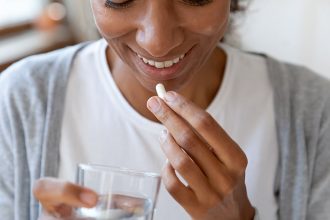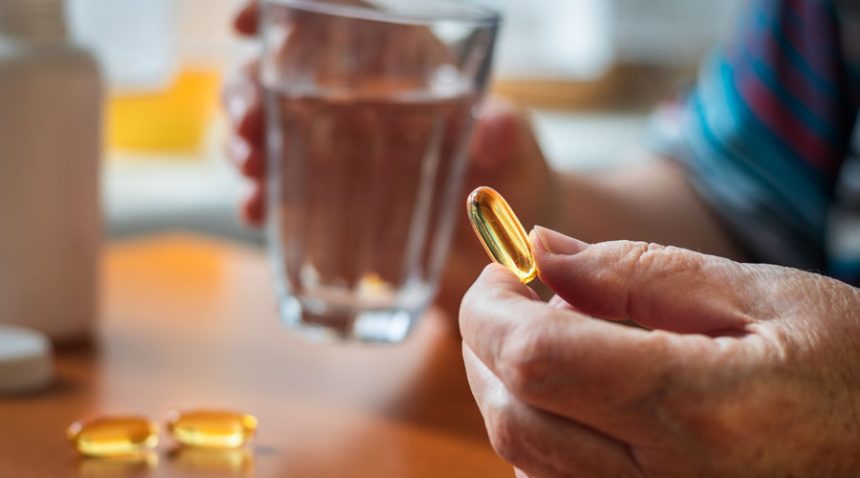Around 35 percent of adults in the United States are categorized as deficient in vitamin D, as reported in StatPearls.
Vitamin D is known to impact the immune system in various ways, with both positive and negative effects. Given the widespread desire to strengthen immune systems, it’s crucial to grasp the significance of vitamin D in this regard.
What Is Vitamin D?
Here’s a brief summary: Vitamin D functions as a hormone produced by the body in response to sunlight exposure, as explained by the Hormone Health Network.
Sunlight is the primary source of vitamin D, as it’s challenging to obtain sufficient amounts from dietary sources. Additionally, since vitamin D is fat-soluble, dietary fat is necessary for its absorption.
Caroline Jouhourian, MD, a gastroenterologist at Lowell General Hospital in Lowell, Massachusetts, highlights vitamin D’s crucial role in promoting bone health by aiding calcium absorption.
There are two main types of vitamin D: D3 and D2. D3 is synthesized in the body through sunlight exposure, whereas D2 is found in certain plants like mushrooms and yeast. D3 may be more effective in maintaining optimal vitamin D levels, as noted by Melaina Bjorklund, RD, a clinical dietitian at Penrose-St.
Vitamin D and the Immune System
Dr. Jouhourian emphasizes that while vitamin D is known to impact immune health, the relationship is complex and still not fully understood.
Our immune system comprises two components: the innate system, inherent from birth, and the adaptive system, which develops over time through exposure to pathogens. It’s the adaptive system that combats bacterial and viral infections. Dr. Jouhourian highlights that inadequate vitamin D levels may compromise the adaptive immune system, potentially increasing the risk of chronic autoimmune diseases like multiple sclerosis, type 1 diabetes, and Crohn’s disease.
Research suggests that insufficient serum vitamin D levels are associated with a heightened risk of developing and exacerbating multiple sclerosis, as outlined in a June 2018 review in Neurology Therapy. Furthermore, individuals residing in regions farther from the equator, where sunlight exposure is limited, tend to have lower vitamin D levels and an elevated risk of various infectious and chronic diseases, including autoimmune conditions, cancers, heart disease, schizophrenia, and type 2 diabetes, as noted in a January 2013 paper in Dermato-Endocrinology.
However, Dr. Jouhourian mentions that excessive vitamin D intake may potentially have adverse effects on the innate immune system, although this aspect requires further investigation.
Vitamin D and Respiratory Diseases
The acquired immune system, which defends against bacterial and viral infections, including COVID-19, may be compromised in individuals deficient in vitamin D, according to Dr. Jouhourian. Research indicates that vitamin D deficiency is associated with an increased risk of contracting COVID-19, as demonstrated in a September 2020 study published in JAMA Network Open. Additionally, Black individuals with vitamin D levels below 40 ng/ml were found to have a significantly higher risk of testing positive for COVID-19 compared to those with higher levels, as indicated in a March 2021 study in JAMA Network Open.
However, vitamin D supplementation could potentially benefit respiratory infections, according to a February 2017 meta-analysis and systematic review in the British Medical Journal. The review, which examined 25 studies, concluded that vitamin D supplementation reduced the risk of acute respiratory tract infections overall, with greater benefits observed in individuals with severe deficiency.
Despite these findings, it’s crucial to understand that vitamin D supplementation does not guarantee immunity against COVID-19 or other infections. Dr. Jouhourian emphasizes that while supplements may potentially aid in fighting infections, they do not prevent the acquisition of illnesses like COVID-19. Additionally, it’s important to recognize that the primary focus of vitamin D research has been on its role in bone health rather than immune function.
Frances Largeman-Roth, RDN, author of Smoothies & Juices: Prevention Healing Kitchen, underscores that while various relationships between vitamin D and health outcomes have been explored, only the association between vitamin D and bone health has been firmly established.










